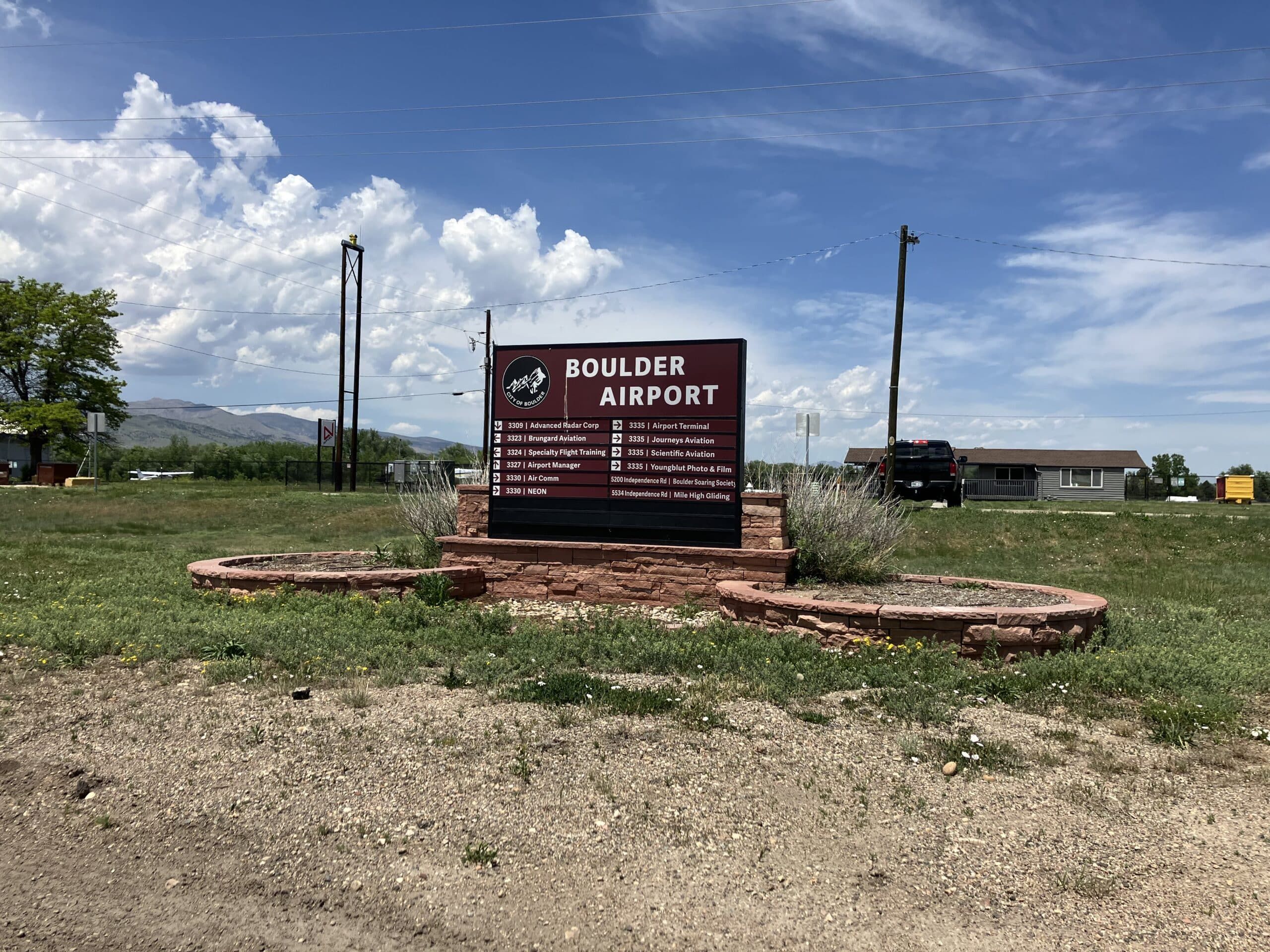Boulder Municipal Airport closure petitions successful
Measures could go to voters in November

BOULDER — Proponents of closing the Boulder Municipal Airport and building homes on the property got a big win this week when Boulder City Clerk’s office verified that a pair of separate but complementary petitions — Repurpose Our Runways and Runways to Neighborhoods — received enough signatures to appear on the November ballot.
Each petition needed at least 3,401 signatures; Repurpose Our Runways got 3,487 and Runways to Neighborhoods 3,422.
Now that the petitions have been certified, the Boulder City Council has a chance to weigh in on the next steps. Here, according to the City Clerk’s office, are the potential outcomes:
SPONSORED CONTENT
- Council places the measure (closing the airport for the purpose of building homes) on the ballot as an initiated measure.
- Council proposes amendments to the measure and the committee (the groups that brought forward the petitions) agrees; it is placed on the ballot as a referred measure.
- Council decides to adopt the measure and it does not go to the ballot.
- Council decides to amend the measure and the committee does not agree with the amendments. Both measures are placed on the ballot as competing measures.
Boulder City Council is expected to begin taking up the issue in late July and must provide the Boulder County Clerk and Recorder with a ballot order by early September.
The idea of closing the airport has proved controversial, as housing advocates argue that move would offer a once-in-a-lifetime opportunity to provide below-market housing that’s accessible to the type of middle-class worker who can’t afford a million-dollar-plus home and doesn’t qualify for traditional subsidized housing, while airport supporters say a closure would be shortsighted and would result in a costly legal battle with the federal government.
The soonest the airport, which is tucked away on about 180 city-owned acres between neighborhoods and business parks in east Boulder, could be closed is 2042, so any new homes on the site are likely at least two decades away from welcoming their first occupants.
“The city of Boulder is at a crossroads. We have an opportunity right now to re-examine land use at the airport site,” the Airport Neighborhood campaign, which supports both petitions, urges on its website. “We need to seize this moment to reconsider how these 179 acres of public land can best contribute to the Boulder of the future. Now is the time to reach the voters of Boulder with a vision of new neighborhoods that are affordable to our families, nurses, teachers, fire-fighters, police officers, day care workers, elder care workers, and other essential workers and service workers.”
While there are certainly critics, the concept of the city decommissioning BDU and selling the land at below-market rates to developers who would pledge to build “missing-middle” housing — homes for workers who wouldn’t qualify for government housing subsidies, but can’t afford entry-level market-rate units — has caught on with some Boulder officials, and the idea is being evaluated by city staff.
But is the idea feasible? Some argue that it isn’t.
The FAA’s “policy (is) to strengthen the national airports system and not to support the closure of public airports,” according to a letter to city staff from John Bauer, the FAA’s Denver Airports District manager. “The FAA has rarely approved an application to close a federally obligated airport. Such approvals were granted only in highly unusual circumstances where closing the airport provided a benefit to civil aviation such as funding a replacement airport in the community.”
Boulder Municipal Airport, according to the Colorado Department of Transportation’s 2020 Colorado Aviation Economic Impact Study, the most recent dataset of its kind, supports 299 jobs and is responsible for nearly $97.8 million in total economic impact. That metric includes payroll, business revenues and contributions to gross regional product from both on-site businesses and visitors who travel through BDU.
“Each individual airport contributes to the statewide economic impacts that result from on- and off-airport activities. In addition to the on-airport and visitor components, the state benefits from the activity that is generated as a result of air cargo,” the CDLE study said. “These statewide benefits represent aviation’s economic contribution to Colorado’s economy. Beyond these quantifiable impacts, there are many more health, safety, and mobility benefits that are experienced due to airport activity.”
Proponents of closing the Boulder Municipal Airport and building homes on the property got a big win this week when Boulder City Clerk’s office verified that a pair of separate but complementary petitions — Repurpose Our Runways and Runways to Neighborhoods — received enough signatures to appear on the November ballot.
THIS ARTICLE IS FOR SUBSCRIBERS ONLY
Continue reading for less than $3 per week!
Get a month of award-winning local business news, trends and insights
Access award-winning content today!





